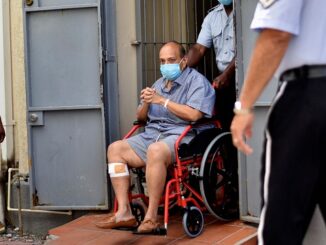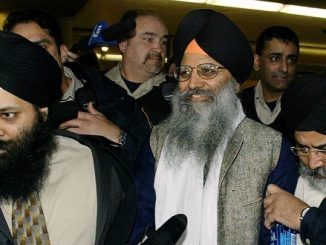
India’s Supreme Court has allowed people to draw up “living wills”, meaning they can seek what is known as passive euthanasia.
It means medical treatment can be withdrawn to hasten a person’s death, if strict guidelines are followed.
This would apply to patients suffering from terminal illness and who are in a vegetative state.
A living will sets out a patient’s wishes regarding how they want to be treated if they are seriously ill.
The Indian judges said the right to die with dignity was a fundamental right and that an advance directive by a person in the form of a living will could be approved by the courts.
Petitioners, who had argued that people have the right to die with dignity if they are suffering from a terminal illness, hailed the judgment.
“Today’s is a landmark judgement because it comes at a time when medical science allows patients to be kept alive by artificial means and the hospitals to keep charging money,” Vipul Mudgal, the head of main petitioner Common Cause, an advocacy group, told the BBC.
When a patient dies because medical professionals either do not do something necessary to keep the patient alive, or stop doing something that is keeping the patient alive. This might include:
- switching off life-support machines
- disconnecting a feeding tube
- not carrying out a life-extending operation
- not administering life-extending drugs
It remains unclear, however, how courts could guarantee that living wills were not drafted by patients under coercion.
In 2011, India’s top court had ruled that life support could be removed for terminally ill patients in exceptional circumstances.
While rejecting a plea to end the life of a woman who had been in a vegetative state since 1973 in the city of Mumbai after being raped and strangled, the court had said some cases of euthanasia could be sanctioned if doctors were to file a case in court.
Aruna Shanbaug, who was left with severe brain damage and paralysed after the 1973 attack by a ward attendant in the Mumbai hospital where she worked, died in 2015.
Her death sparked a national debate over euthanasia.
The 2011 judgement had put the onus on doctors to petition to withdraw life support, under the supervision of the courts. Previously all forms of euthanasia were illegal in India.
On Friday, judges of India’s Supreme Court outlined detailed “guidelines” for facilitating passive euthanasia.
The court said that family members and relatives of terminally ill patients seeking passive euthanasia could go to court to have it sanctioned. A team of doctors would then be appointed by the court to decide if it is needed.
There have been a number of requests for active euthanasia – any act that intentionally helps another person kill themselves – by Indians which have been rejected by courts and authorities.
In 2008, Jeet Narayan, a resident of Uttar Pradesh state, wrote to the then Indian president Pratibha Patil seeking permission to end the lives of his four bed-ridden, paralysed children. The president had rejected the plea.
In 2013, Dennis Kumar, a porter from Tamil Nadu, sought permission from the authorities to end the life of his infant son, who had been suffering from a congenital disorder. The plea was rejected by a court.
Source: bbc.co.uk






Be the first to comment